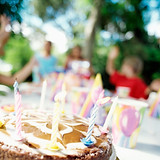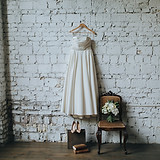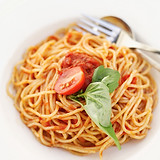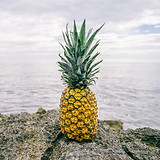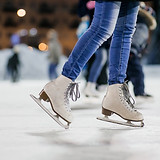American Girl
Brevity Magazine
"Every Sunday, I field this call from Brittany, and every Sunday, some new dispatch of what life is like for one in every hundred Americans, the greatest number of prisoners worldwide. Tonight, it is a story of mealworms, of the thirty-year-old tasked with raising them, and for all of the differences now between us—between the nuances of our Midwestern Sundays, between the ways the system failed and did not fail us, between who we are now and who we once were—for a moment in time, we were the same." Read more
I Know All Too Well How A Lovely Relationship Can Descend Into Abuse
New York Times, Guest Essay
"I remember the evening and its purple sunset, the canyon we climbed in order to see it. And then I remember our conversation, its escalation. That night, I lay beside him for seven hours as he screamed and sobbed and raged and became someone else entirely. I didn’t tell anyone about it then because I was embarrassed that the person I loved was someone who could be so cruel to me. I thought I could hide this shame by displaying a curated version of my life on social media — photos of the rocks we climbed in Joshua Tree or the yucca palms we split in two to act as natural desert disinfectant. No one would have believed how scared of him I was as I posted my cheerful images, and I wouldn’t have really believed it, either, because we don’t think these things happen to us until they do." Read more
On Dangers Real And Imagined
Columbus Monthly
"It’s been seven years since the night I thought I might die in the desert. It was July, Colorado. I was 27—a woman with an orange tent and a romanticized vision of desert camping. I wanted to drive west that summer to see America’s deserts—more specifically, the petroglyphs of Mesa Verde, the early drawings of man and ram and bird, their lined aesthetic in orange rock so very different from the greens and yellows that dominate Ohio. Like so many women, I believed I all but secured my safety by inviting my partner along. So together, we drove from Delaware, Ohio, to Indiana to Illinois to Iowa and then pushed on through Nebraska, then Colorado. We invented games along the way: Eat this thing from the convenience store. Drink this drink, or else. Somewhere in Nebraska, I tried my first 7-Eleven taquito, filled with jalapeño cream cheese. He tried a soda flavored with tamarind. We laughed at the sight of Kum & Go gas stations, their 100-ounce HuMUGous Mug retailing for a reasonable $14.99. He filled it with coffee, then Pepsi. I questioned his sanity, and also his bladder. Our trip was fun. If we didn’t have fun, it all would’ve been easy. The point was, in fact, that everything about him and us was two ways. There was the fun, and then fun’s opposite, and it was this duality that made leaving so difficult." Read more
Black Lives—And Bodies, Livelihoods, And Traumas—Matter
Ohio Wesleyan University
"We have to do a better job, and we have to do so despite fear of consequence. Black bodies are being profiled, abused, incarcerated, ignored, exploited, and murdered at alarming rates, and while I have never been one to align with our country’s dogmatic sense of patriotism, it seems to me the most American thing one can do to examine the fallacies and failings of our society, and subsequently work to illuminate—and remediate—them." Read more
On Images of Violence
Columbus Monthly
"As a teacher, I wanted the best for my students, but at times it felt difficult to give them that with so much of my own personal garbage percolating just underneath life’s messy surface. Which is to say—and I’m not used to writing about my professional and personal lives at once—that I was in a relationship that year with a man I loved, a man who also screamed at me. I loved him more than I loved anyone, and also, sometimes I feared his love." Read more
Flight Path
Grand Prize Recipient, The Sonora Review Flash Essay Contest
"On an evening in mid-November, indistinguishable from any other, a boy fell from the sky. Because it was November and because this was New England, we might imagine, just feet away, the scent of wood smoke, lingering. We might imagine pot roast, tumblers of milk sweating neatly on placemats. Dusk folding, yellow, against the window and children in wool socked feet trawling plastic cars through too thick carpet, their wheels leaving scratched indentations on vapor trails on muted shag Because it was just past seven, we might imagine Jeopardy." Read more
Harvesting Irony in Alaska
The New York Times Opinion Pages
"Sometimes the world hands us metaphors too startling to ignore. A week ago, awaiting take-off to Alaska on the tarmac of Seattle-Tacoma Airport, a man turned to me and announced he was a seasonal Alaskan logger. Big and bulky and built, his arms golden and glistening and indicating the particular attributes of a man in youth—a tattoo for the Chicago Cubs, and another of a bulldog—he told me this summer would mark his third in Ketchikan, cutting and hauling timber for one of the nation’s largest logging companies." Read more
Consolation Puppies (with graphic essayist Martha Park)
Granta Magazine
"There is a parallel, I think, in this: the things we love become unrecognizable. A dog, a man, perhaps even a country. If I could put America in a bath, I would, believe me: I would scrub it of all that soils." Read more
Gun Violence: America's Great Common Denominator
Literary Hub
"Like most Americans, I know enough of gun violence now to know it happens all the time and with great disregard for environment. Which backdrops of our America have not been interrupted by such violence? Bullets rain down in shopping malls and doctors’ offices, churches and—god help us—schools. I haven’t seen a film out in years. And yet Sunday morning still felt sacred." Read more
On Essaying The Violence Against 'Women These Days'
Brevity Magazine
"I'm working now on a book about women and fear and danger, and one of the hardest parts of writing it is grappling with the fact that male intimate partners—husbands, boyfriends, fiancés, lovers—take the lives of three American women on average daily. That's more than death by car accident, death by suicide, death by cancer. The risks are greater if you're a woman of a color, greater if you are gay, greater still if you're transgender. Why does it not unsettle us more? These deaths exceed the causalities of 9/11 every three years, and yet no one dares declare war on this uniquely particular, domestic terror, not foreign or distant at all but in the very same spaces where we throw birthday parties, flip pancakes, string Christmas lights, grill ballpark franks." Read more
Women These Days
Brevity Magazine, Nominated For A Pushcart Prize and Inclusion in Best American Essays 2019
"Police are still searching for the suspected rapist. Police are still searching for the suspected murderer. Police are still searching for the suspected assailants. The suspect is reported to be a tan white male in his mid-50s with no facial hair. The suspect was last seen shirtless and in work boots with shorts. The suspect is between 25 and 35 and was wearing grey knee-length trousers and a blue-green chequered shirt. The suspect drives an older model small car that is dark green or maybe blue. The suspect denies ever seeing the victim before. The suspect denies being at the bridge at the time of her murder. The suspect alleges he was at the mall at the time of the shooting. The suspect denies being in the park that morning. The suspect reports he was grocery shopping at the time of the murder. The suspect remains at large. Police ask for anyone with information about the suspect to come forward." Read more
MIA: The Liberal Men We Love
Literary Hub
"Much has been written on the way in which Trump gaslights, but far less has been said of the collective syphoning that occurs from relationships drained of normalcy, of an ongoing and daily stare of current affairs in which somehow every day is worse. Who is it that said that when fascism eventually comes to America, it will be draped in the flag and holding the cross? I think it is worth adding that it will wear the face you love." Read more
Bare Necessities
Harper's Magazine
"We turn to make our way back, and from this vantage point, two miles out, the landscape seems suddenly and intimately foreign—a moon, an alien planet, colored warehouses flanking the visible horizon like enormous Lego cubes. I feel what some workers call “the crush of isolation”—the realization that you are so very far away from everything, despite the carousels of condiments, the freezers of popsicles, the Gushers and the Fruit Roll-Ups and this insistence on familiar Americana. Finally there comes the music, the smell of grilled processed meats, and the polar bear, who gestures me forward with one fuzzy paw. I leave Casey behind and we bend at the waist for Shaggy’s “Angel,” rolling our arms like fleshy noodles. He takes my hand in his and we dance, the ground giving slightly to each step." Read more
Gradient
Brevity Magazine
"So when he called and said, I am hunkered down in the back of the classroom, said, I helped stack a dozen chairs against the door, said, I don’t know, I didn’t hear ‘popping,’ but it is mostly quiet now except for crying, I thought of consequence. I thought of the Wailing Wall—the beautiful strips of paper where, months earlier, his father and Jewish grandmother wrote our names on a piece of paper, tucked them into ancient stone. They believed in us, they told me later, and they believed in the love we shared. It was their faith that gave me comfort, how they seemed capable of seeing what remained otherwise invisible: how one heart had opened tenderly to another, like petals unfolding gently to reveal the softest bud." Read more
Taking Shape
Beautiful Flesh: A Body of Essays Anthology
"The doctors prescribe me anti-inflammatories and steroids that make my kneecaps small but cause my cheeks to swell. They give me crutches to ease the impact of my weight on the joint, but it’s not long before I give up. My arms aren’t strong enough. My armpits ache from where the crutches push. Instead, I spend most of May on a mattress. “It could be worse,” my friends say when they visit. They sit on corners of my bed, their swimsuits soaking through their shorts from hours at the public pool. “You could,” they laugh, “be a total cripple.” In June, they stop visiting altogether. I spend the rest of summer watching reruns of Big Love on my bed, my leg propped up with pillows, listening to the sounds of my brothers swimming in the pool below." Read more
How The Depressed Find Solace on Yik Yak, Believe It Or Not
The New York Times Opinion Pages
"Ohio is a tricky place. The land itself is beautiful: sprawling prairie and caverns that dip deep into the earth. But if there is one thing I can say about Ohio, it is that nowhere I’ve lived possesses such a sense of transitoriness. Never have I seen so many 18-wheelers. The roads seem less like roads than interconnected pads of money strapped down to vehicles, crates of humidifiers and entertainment sets and steam vacuums and Ikea furniture. Accent tables. Budweiser beer. Always there is the reminder that the world lives somewhere else. Our county is vibrant, and yet we are surrounded by closing coal mines and empty factories. What is not collapsing is sprouting strip malls, tanning salons, another gym. Ohioans are also dying from opioid overdoses at a higher rate than anywhere else in the country, which is truly saying something. At least 23 Ohioans die from heroin overdoses each week—so many that some coroner’s offices are requesting cold-storage trailers to use as makeshift morgues." Read more
What A Third Grade Geography Lesson Taught Me About Women's Place In The World
The Washington Post
"I want to say something to Mrs. Hinds, want to tell her that I am strong enough to be a country, big enough, that my brothers have taught me many things—including how to build a fire and shelter, and pack mud into dense jumps for BMX biking. I have scabs that I want to show her, scars pocked along my knee. I think of rolling up my jeans and showing her the wounds, sticky and sticking to the denim, so that she might bear witness to the kind of girl I am. Instead, the boys cluster. They cheer one another. The power dynamic is evident. Whatever sense of wonder Mrs. Hinds had hoped to cultivate is lost in our expressions: Us girls, our ponytails, insignificant things, we think, are we." Read more
What I Learned From Visiting The Grave Of My Mom's Teen Boyfriend
The Washington Post
"My mother left Rich before he knew what he would do with his life, certainly before she knew what would become of hers. And while my mother has taught me many things, none seem as important to me now as the understanding that single people have the power to choose what becomes of life. That regardless of any loneliness, or sense that you are failing, the best lives we can erect come from a strong acknowledgment of the self: that we are fine even when alone; that in many ways we are better; and that—and this lesson did not come to me easily—any discomfort or loneliness borne of leaving a bad situation is remedied in its dissolution. The only thing worse, my mother told me, than living a life that makes you unhappy is to not know yourself enough to seek something better." Read more
Pokémon Go See the World in Its Splendor
The New York Times Opinion Pages
"Certainly there is the argument—already frequent, predictable and boisterous—that it is a particular brand of tragedy that leads an entire generation of American children into the great outdoors while clutching phones before their faces. Still, fads fade. Pokémon Go will no doubt go out of style. And I’ll still feel more tethered to my community and aware of all it offers—I’ll know that the Creole restaurant is indeed very good, and that the movie theater is rather charming, and that this place of dairy and agriculture is not Alaska but is no less lovely. In the meantime, it seems far from terrible to see a father and son racing down suburban sidewalks. To spend an evening not sitting passively before a TV, but interacting simultaneously with both our media and the world. To share in an experience, however seductive or silly, that forces us to go out and explore together." Read more
Emoji Feminism
The New York Times Opinion Pages
"I began to scroll through the emojis on my phone. Yes, there were women’s faces, and tiny women’s bodies. But for the women actually engaged in an activity or profession, there were only archetypes: the flamenco dancer in her red gown, the bride in her flowing veil, the princess in her gold tiara. There was a set of ballet dancers complete with bunny ears and black leotards, their smiles indicating that, gosh, they were so grateful to God and everyone, really, for this opportunity to pose for Playboy. Where, I wanted to know, was the badass professor working her way to tenure?" Read more
Flight Behavior
The American Scholar, Grand Prize in the Solas Awards for Best Travel Writing 2016
"For no matter how long we might stand beside another, eventually we all encounter the same aloneness, must confront the very same curtain, the teeth of its fabric pulled back, the world at large still irksomely waiting in all its beautiful, terrifying, strange, frightening love." Read more
Eight Quarters
Brevity Magazine
"The idea of the photo booth was, of course, alarming: the idea of sitting on his lap. The idea of that tiny, curtained space. As a child, I'd sat often in photo booths--inside movie theaters and skating rinks, my friends and I widening our eyes, pulling apart our cheeks to show tongues blue or green from Pixie Sticks. It was, in short, a thing of pleasure. But to squeeze inside one now, I was afraid, would force that uneasy reminder." Read more
On The Road To 'The One,' Sometimes, A Rest Stop
The New York Times "Modern Love"
"I saved Sam after the park ranger’s third warning. A tornado was imminent, the ranger said, and we should seek shelter immediately. The Iowa state park where Sam was camping offered only a small brick outhouse, which I joked seemed the worst possible way to die, surrounded by daddy longlegs and cinder block walls on which teenagers had scribbled “Weed Rules!” in black Sharpie." Read more
Reenacting
The Iowa Review, Grand Prize in the Iowa Review Award in Nonfiction
"I replay that sunlit, winter memory now and I’m always looking for something new: a detail I never noticed, a way to make the ending change. It’s almost as if I can will it into existence—as if, if I want it bad enough, I have the power to rewrite everything. To turn to Kevin in that upstairs bedroom and say, “I am someone you can talk to,” say, “I am here for you.” “I’ve never done that,” I might have said, “but I understand how someone could.” How, sometimes, life feels hard. How maybe it’s only normal not to want it. “This is someone we can talk about,” or, “We don’t have to keep this quiet.” Instead, I said nothing and now I wonder." Read more
A Slow Kind of Unraveling
Gulf Coast, Best American Essays 2015 Notable Distinction
"This man couldn’t make pancakes, probably not even from a box. That’s not an exaggeration. He couldn’t make pancakes and he couldn’t make French toast. It always came out too wet. But he could make spaghetti with red sauce from a jar. He’d made that for me on several occasions, and always I ate it happily, slurping the noodles loud from my fork as they unwound and loosened from the prongs. He was the first man I’d ever known who did not care if I was not polite. I loved to slurp in his kitchen, knowing my slurping was not an issue." Read more
Why It's Called A Life Sentence
Guernica
"It’s an ugly truth to admit, and an uglier one still to move beyond—how I became obsessed with my every freedom, the rights and sights and sounds afforded to me because I was me. Because I was not him in that dark, dissociative hour, or her, or anyone. Because I was in a bed that night, asleep. And thus now could travel, or take a ferry, or learn Tagalog, or ride a bike. I think I want these things—I seek them out—not because they make my life more interesting, but rather, are made interesting because of life: because I am here when I could easily not be, because everything I see I could easily not." Read more
One
Hobart
"My feet in stirrups, I thought of the photo: the one where you sit, slung, over a naked women somewhere in San Francisco, her pale and meaty thigh the only discernible thing about her. Or another: your drunken smile, of which I am so familiar, and the fresh dark blood across your face, so dense it looks nearly black where the light fails to catch, to bend. And how, in the moment when I first saw it, all I could think was, Whose? But whether yours or someone else’s, it did not make me feel even a tiny bit better. Blood is blood is blood, and yours has nothing to do now with me. In the picture I showed the doctor, the background was white bathroom tile, small travel soaps and your yellow toothbrush, which you’d lent me on the night I told you—after five years and that many states—I felt sure it was love and not some other thing. The look on your face was hollow, drained. Despite all that time, you told me, the ways in which you felt were “not overwhelming.” This is how you said it, too. You said, “I don’t feel overwhelmingly.” I will think of those words often, and every time, feel a renewed sense of surprise at your conviction. Your absolute lovelessness." Read more
All We Had
The Paris Review
"The recipe for the dish is my grandmother’s, and it is simple: whisk together flour and water, whisk until the dough sticks to the spoon and then, at last, snaps back against the bowl. It’s all about consistency, something you can’t put your finger on, something you just have to know. That is why there is no written recipe for this dish, this congealed mess of white that gets boiled in bits and drenched in sour cream and salt and pepper. There is no written recipe because how do you put your finger on dumpling elasticity?" Read more
We Walk A Line
Hobart
"Yesterday, I returned from one such walk and found a vase of daffodils on our table. Where are they from, I wanted to know. It’s the first week of April and we live in an economically depressed area; you don’t spend what little you have on flowers. “Next door,” is what she said. Next door is a mortuary. Every day, I watch the people come in and out, watch the men arrive in their khaki pants, their faces hardened the way grief will harden." Read more
Displaced
Vela Magazine
"Miles away, in the sanctuary, far from the downtown, I read the tarsiers were so afraid that for the first time in history, they lowered themselves to the shaking ground. They didn’t know where else to go. They didn’t know if it would hurt or help. It will likely be many months, I read, before tourists can visit them again. We all long for comfort and quiet, a place where we belong. And a house is not whole without the ones we love inside, whether animal or person or gnarled tree rooted in deep swamp." Read more
Look Back
Tin House
"Look back,” he was always saying, as if my memory was broken, a truth I’d later begin to believe. Look back, look back, look back, already mythologizing what we had. Now it’s how I remember him most. It reminds me of skinning a knee—you know, how it hurts, but then that hurt is only amplified by the power of its own memory? The image of falling and that urgent pain? Look back. I think now he must have meant at our past: how we met, my sweetest gestures, the view behind us on the road. Our car tracing asphalt carved into earth. We wound and dipped beneath steely gray machinery as conveyers larger than my body harvested minerals compressed by time." Read more
Bigger Than Ourselves
Tin House
"The mutual friend was of shared interest: her purple pants and big, empty house. She reminded us of a librarian and spoke like a dictionary, like a foreign language translation site, coupling the things I knew so well in patterns I had to think about to understand. From time to time, she spoke to us about existence as one of many simulations, our world a blinking cosmic hard drive, and I liked most to consider that concept. It made me terrifyingly ecstatic: how bad it could get if the plug got pulled." Read more
The Place We First Came From
Fourth Genre
"Every Thursday night at seven, I call my brother to hear how the baby is doing. The baby is not yet a baby, just a wet clump of cells, a creature “the size of a lima bean,” my sister-in-law tells me. From my place a thousand miles away, I listen to their report: how they’ve picked out a color for the walls, they say, or are considering the name Russell. 'It’s Old French,' Lauren says. 'Can’t you envision a tiny beret?' 'Yes,' I say. 'Yes—chewing a baguette, blowing smoke rings.'" Read more
These Storms Both Big And Small
Tin House
"This only five weeks after an EF5 pummeled Moore, Oklahoma, only three weeks after another pummeled Oklahoma City. You were in a hotel in Ohio then, drinking Coors from a tallboy can, and because you’d spent that day on the open road, you watched everything you could: cars crushed the way ice is crushed, houses toppled like Lincoln Logs. Days later, you watched again from a sun-lit living room, safe with your family back East, but all the while you thought of your home in Iowa, thinking, My god, and then: Not there. Now you are here and the storms have joined you." Read more
Sick
The Rumpus
"I often thought that by this far out, I’d be able to look at what Kevin did and it would seem a distant pinpoint, something small on the horizon, something I experienced and then moved on from. Above all, it seemed this: the past, of course, would pass. Instead, it remains large and looming. I walk my dog now beside the reservoir and of course I think of him. It’s like momentum, I want to say, and what I mean is how it looks when a rock strikes a body of water—how ripples can form and move even long after the stone has sunk." Read more
Lessons of Grief
Vela Magazine
"Three years, and because I didn’t want to think about what Kevin did or, more specifically, who he did it to—not really, anyway—I spent that time instead studying thunderstorms, reading Hemingway, touring the Philippines. I spackled a wall and caulked a bathtub and pitched a vinyl tent in a western desert. I learned Tagalog and saw a waterspout, bought a handheld blowtorch and roasted ducks, and Emily, of course, did not a single one of those things. In a small town in Illinois, I split dessert with the nation’s best juggler. In a small town in eastern Iowa, I kissed Flava Flav on his stubbly cheek. In an island in the South Pacific, I sat on a bar stool while a woman ran a bamboo shoot across my body—again and again and again—and I waited as she blew in, as she blew out: her attempt to undo a curse. ‘Has it been there long?' I asked, bewildered, and she lowered her eyes, not knowing my language." Read more
Beneath the Surface
The Indiana Review
"It was December then and this, we figured, was the best time to be on such a list. A heart would be salvaged from a car accident that would occur on the way to Christmas dinner or at some point on New Year's Eve. The person would be drunk or not. The accident would occur on a highway or not. The donor would be married or he wouldn't. He would have kids or live alone. It didn't matter. We could not think about this person. He would be what doctors called "a beating heart cadaver," his heart would be flown by helicopter, doctors would remove Robbie's heart, and the new one would go inside the empty cavity in his chest." Read more

You Miss Until You Make It
Gawker
"Had this been a romantic comedy, here would undoubtedly be my climatic moment: a protagonist who suddenly realizes she has all the power and—surprise—has had it all along. I’d raise the gun to my shoulder and shoot the apple straight off its crate. It would explode into a million pieces, red and white and wet, shooting off into the grass, which grew brown along the chain-link fence. But I did not have the power. The shots I made were always misses. And worse, the gun hurt when it kicked back. My shoulder throbbed with an urgent pain and still I could not hit a can, could not hit an apple. Round after round after round, every aim I made I missed. I did not feel powerful or strong or full of feminine wisdom. I felt silly and alone, newly dumped and newly single, holding a gun so big and heavy I wondered aloud how much longer I could hold it up." Read more
Still Things
Brevity Magazine
"I liked ice-skating mostly because I didn’t understand it. I just pulled the stiff leather up to my knees, stood upright, wobbled back and forth until I began to move and then, in motion, I felt a thing that is not the right thing but I can convince myself otherwise. I think, This is a miracle, what I am doing. But he wanted to talk to me about pressure. He said, You move because the ice melts into water. You glide. I wasn’t gliding. I was wobbling, barely, on a rink beside a movie theater. This was an indoor rink. We were in the middle of a mall." Read more
Light Up And Break
The Colorado Review
"When at two the bar closed, I paid my tab and Kevin walked me home. Upstairs in my narrow, long apartment, I brushed my teeth and climbed into bed, and in the morning I woke early to watch The Price is Right in my pajamas. I didn’t know then what had happened—that hours after seeing me home, Kevin murdered his girlfriend and placed her body in a tub. He stabbed her twenty-seven times in the neck and upper torso, then phoned the police, saying, 'I don't know what happened, but I’ll be waiting for you outside.' In my quiet, bright apartment, I watched the colorful wheel spin and spin, the camera panning over jet-skis, entertainment systems and dining sets. One woman won a car, and she jumped up and down, clutching her heart." Read more
I Was Always Pushing
Hobart
"Do you like this place?' you asked, and it was the first time you’d ever really asked me anything—all along, I’d just been following behind you in the dark, close, listening to the sound of you. 'Yeah,' I said, 'I mean, it’s only been a couple of weeks, but yeah, I like it okay,' and you said, 'Good, because I hated it for a year straight,' and I said, 'Really? A whole year?' and you said, 'Yeah, twelve fucking months, I straight up literally wanted to die.' And all I remember thinking was how a year is a real long time. I’d wanted to die before too, of course, but only ever for a few days at time, and even that loneliness made me feel crazy, and not the good kind of crazy, but I mean crazy, like, crazy crazy." Read more
The People We Want To Be And The People We Are
The Rumpus
"I had been single at that point for some time then for no good reason, as far as I could tell, and what with summer quickly approaching, I was in need of a good spider-killer. The bugs crawl under the crack beneath my door and sometimes I find them in my kitchen in the morning, quarter-sized and dark. They move fast, these spiders, and there’s only so many I can put in my vacuum before it’s full and I’m too scared to unload it. I have Googled, on several occasions, Can spiders survive a vacuum’s suction and Can spiders survive coated in dust and I can’t tell you what it said, because of the photos that got loaded, but it didn’t look too good for me." Read more
Probably It's Nothing Fancy
Tin House
"Night comes around and we grill all the food he has in his kitchen: bread and broccoli and little baby mushrooms. We open hot dog buns and set them soft side-down over the pile of coals. We sit by the fire and watch them flame, and when the night is good and through, his kittens join us in the bed. We smell like ash and wood smoke, but still we hold their bodies tight to give their fur the scent of us. We cuddle them to our cheekbones, pretend it’s their warmth we want. But we are not in love. We could never be in love." Read more









